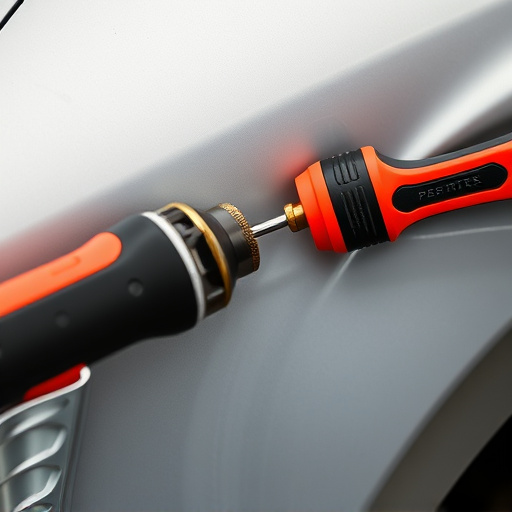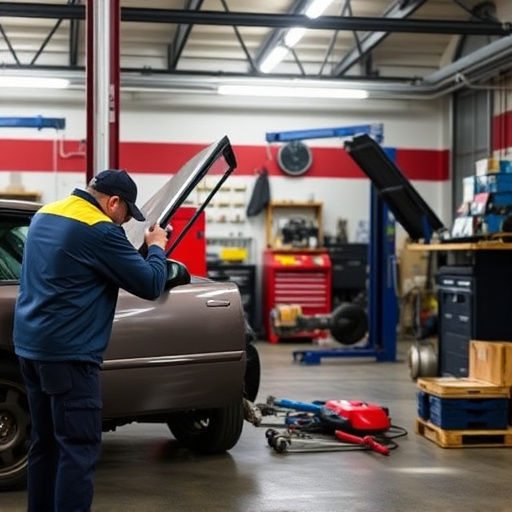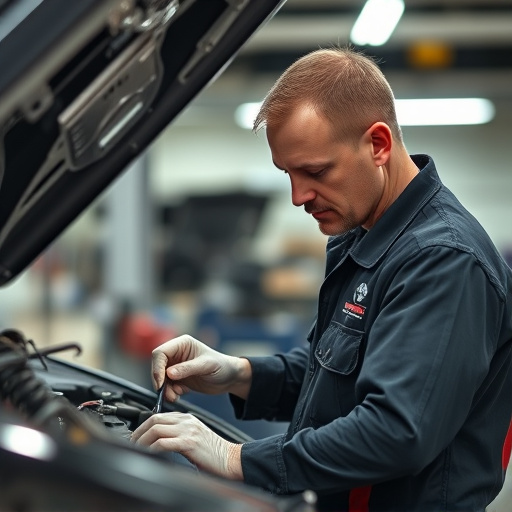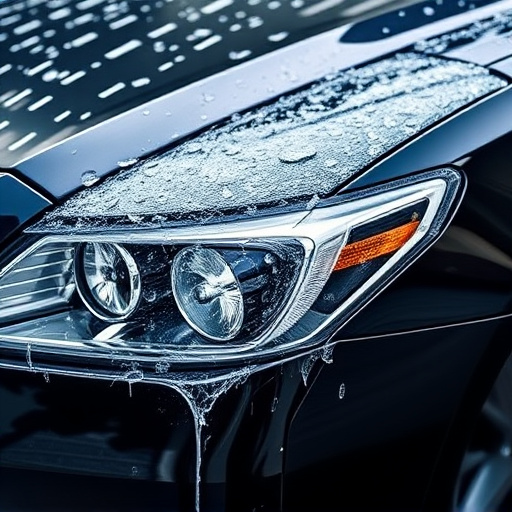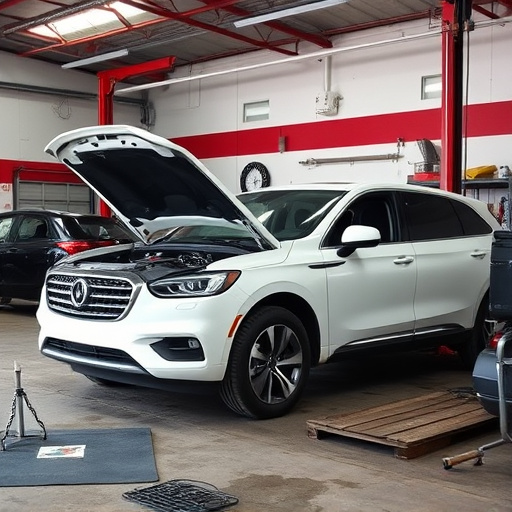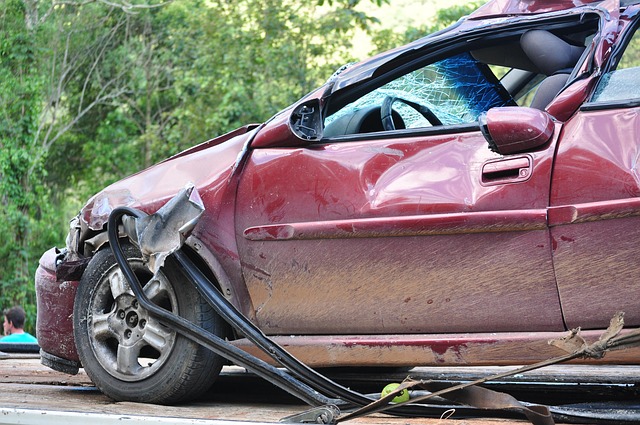In collision repair, meticulous quality checks are essential for both vehicle safety and customer satisfaction. This involves a comprehensive pre-repair inspection and standardized quality control measures to identify and address all damage, from minor dents to complex structural issues. By adhering to high standards throughout each repair stage, top-tier shops deliver reliable, aesthetic repairs that enhance their reputation, foster trust, and meet modern consumers' expectations of prompt service without compromising outcomes.
In the realm of collision repair, ensuring quality isn’t just ideal—it’s paramount for customer satisfaction and safety. This article delves into the crucial role of quality checks, exploring why they’re essential and how they shape a reliable collision repair experience. From pre-repair assessments to post-restoration inspections, we unravel the key components of a comprehensive quality assurance process. By the end, you’ll understand the profound benefits and impact on customers, fostering trust and peace of mind.
- Understanding the Importance of Quality Checks
- Key Components of a Comprehensive Quality Assurance Process
- Benefits and Impact on Customer Satisfaction
Understanding the Importance of Quality Checks
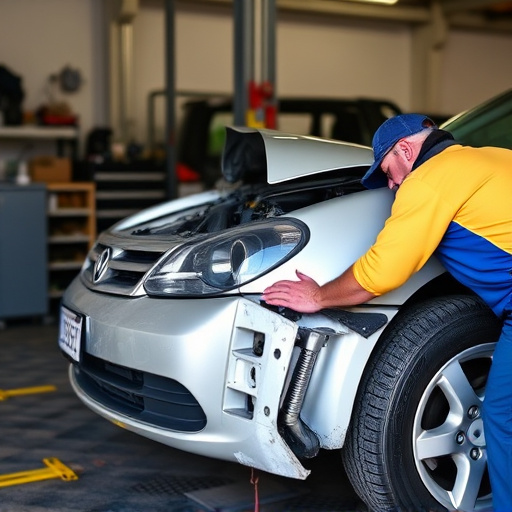
In the intricate process of collision repair, quality checks serve as the cornerstone for a reliable and safe outcome. These rigorous inspections ensure that every component of the vehicle, from the car bodywork to intricate fender repairs, meets the highest standards. Understanding the significance of these quality checks is paramount in the industry. They act as a protective measure, safeguarding both the integrity of the vehicle and the satisfaction of its owner.
A meticulous quality check process involves a comprehensive evaluation of the collision damage, including structural integrity, paint consistency, and the proper alignment of all parts. It’s not just about repairing visible damages; it encompasses ensuring that the vehicle’s hidden mechanisms are also restored to their optimal state. This attention to detail is what distinguishes a good collision repair shop from an excellent one, ultimately enhancing the overall collision repair experience for the customer.
Key Components of a Comprehensive Quality Assurance Process
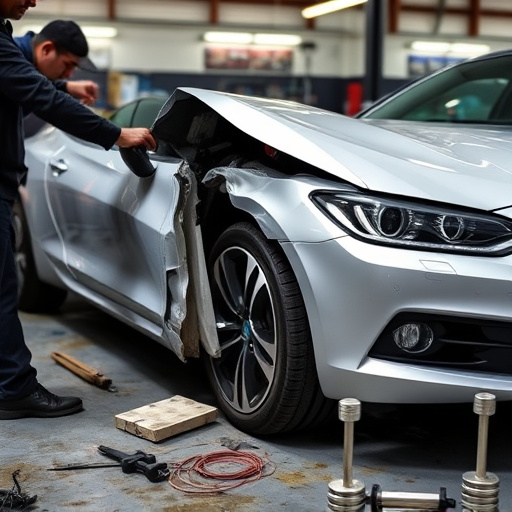
A reliable collision repair experience hinges on a robust quality assurance (QA) process that encompasses several key components. First and foremost, pre-repair inspection is paramount. This involves a thorough assessment of the damaged vehicle to accurately identify all issues, from dents and scratches to more complex structural damage. A comprehensive inspection ensures every aspect of the collision repair is addressed, guaranteeing a complete restoration.
Additionally, standardized quality control measures for each repair stage are essential. For instance, dent removal techniques must adhere to industry best practices to avoid leaving traces or causing further damage. Similarly, bumper repair should prioritize both aesthetic restoration and structural integrity. Regular training and certification of technicians in these processes ensure consistency and adherence to high standards across all repairs, be it a Mercedes-Benz repair or any other vehicle make.
Benefits and Impact on Customer Satisfaction
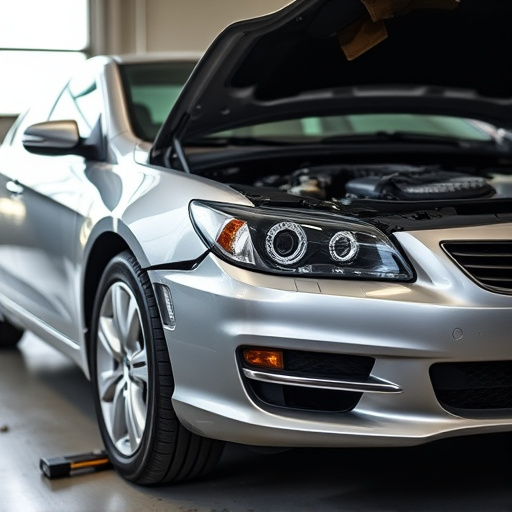
Implementing thorough quality checks is paramount for delivering an exceptional collision repair experience that leaves customers satisfied and confident in their vehicle’s restoration. These checks serve as a protective measure, ensuring every aspect of the repair process meets high standards. By meticulously inspecting components like auto painting, tire alignment, and structural integrity, technicians can identify even the subtlest imperfections. This proactive approach not only guarantees the safety and reliability of the vehicle but also enhances customer trust.
When a collision repair shop prioritizes quality checks, it fosters a reputation for excellence. Customers benefit from repairs that are not just visually appealing but also function optimally. This attention to detail can significantly increase client satisfaction, encouraging positive reviews and referrals. Moreover, efficient quality assurance processes streamline the repair timeline, providing a seamless experience that aligns with modern consumers’ expectations of prompt service while maintaining superior outcomes.
Quality checks are an integral part of any successful collision repair process, ensuring that vehicles return to their owners in a safe and reliable condition. By implementing comprehensive quality assurance methods, repair shops can deliver an exceptional collision repair experience, fostering customer satisfaction and building trust. These checks not only guarantee the highest standards but also enable mechanics to identify potential issues early on, preventing further damage and saving time and money for both the business and its clients.
